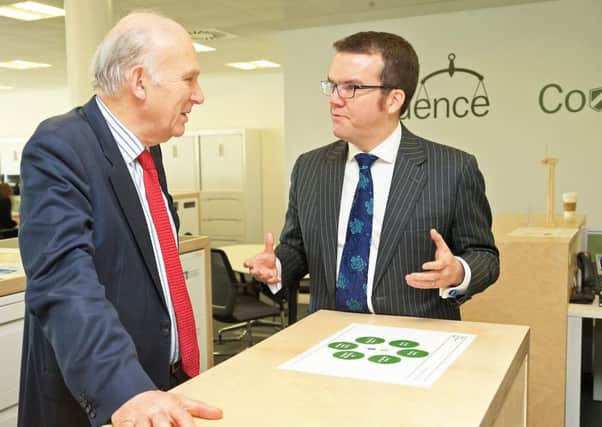GIB to be part-privatised after moving into profit


The move came as the government-backed lender said it had moved into the black with a “modest” pre-tax profit of £100,000 for 2014-15.
Chief executive Shaun Kingsbury said there were a range of options available to Edinburgh-based GIB, launched in 2012 with £3.8bn of taxpayer funding.
Advertisement
Hide AdAdvertisement
Hide Ad“We will keep investing our current share capital from the UK government, we will recycle that capital, we will continue to raise capital for our fund and we will work to attract new equity investors,” Kingsbury said.
“Attracting those investors is a key strategic step for GIB. It will not only ensure that we have the capital to grow but it will allow us to borrow and to invest in a broader range of green infrastructure projects.”
GIB yesterday agreed a “landmark” deal to pump £2 million into a project to generate heat from sewage. The pilot project, which has also attracted £2m from Energy Savings Investments, will see Sharc Energy Systems tap into Scottish Water’s Galashiels network and sell heat derived from waste water to Borders College under a 20-year agreement.
Chancellor George Osborne said: “In 2012 we set up GIB to support important investment in the UK’s green infrastructure and since then it’s gone from strength to strength.
“That is why we can now begin exploring options for moving the bank into the private sector to enable it to access larger pools of capital and act more freely to invest in a broad range of green sectors.”
Business Secretary Sajid Javid said the plan was “the right decision for taxpayers”.
However, Julia Groves, chief executive of renewables-focused crowdfunding platform Trillion Fund, described the decision as “disappointing”.
She added: “Renewable energy is a free and abundant resource, it should be owned by the people. The people will now have to actively invest in their own renewables systems, community energy shares, loans to projects, listed renewables companies or clean tech investment trusts if they want to benefit personally from growth in the sector.
“Let’s hope the new buyers understand the importance of allowing the public to take a stake in their own energy supply.”